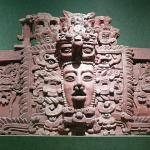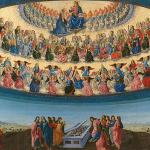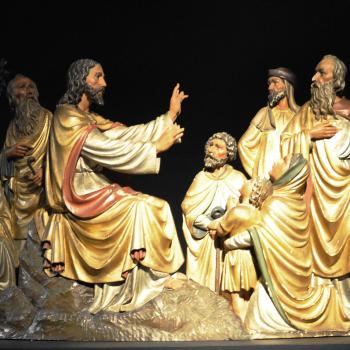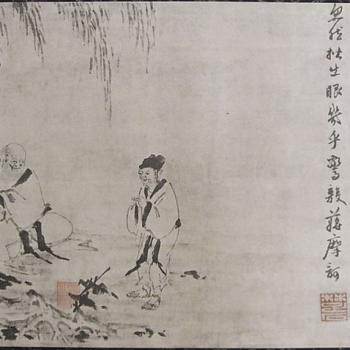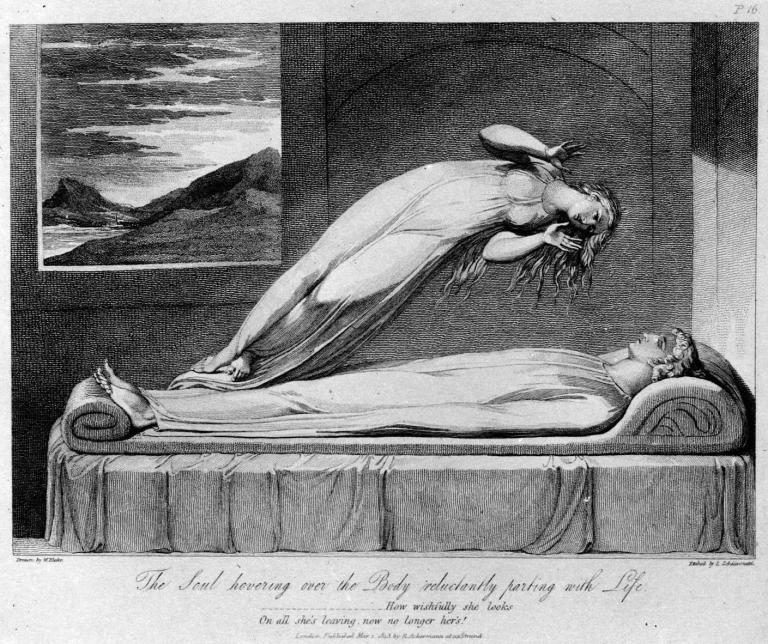
Soul leaving the body
(My friend and colleague, the Reverend Silvio Nardoni recently shared an article he’d written with me. I was quite taken with it, and not just because he quotes me. It’s good. And I asked if I could reprint it at my Monkey Mind blog. He graciously agreed…)
Soul: It’s one of those little four-letter words that covers a lot of territory. Giants in the field of religion and psychology (Thomas Aquinas, Carl Jung, James Hillman, and others) have written with nuance and depth about the meaning(s) of soul. In popular discourse, it has branched out to music, food, and other endeavors in which a dimension of “depth” or “authenticity” brings a richness to the undertaking.
The Soul is Wholeness
I recently traded messages with a couple of colleagues in the Unitarian Universalist ministry in which we commonly affirmed our favorite name for a church: “All Souls” (followed or preceded by a place name). I find this term inclusive in the right way, even though I’m not sure what the word “soul” means. I consider that ambiguity as a virtue rather than a problem. “Spirit” has some of the same breadth of meaning and commonality of usage, and it, too, defies any single definition.
Some religions (Buddhism comes to mind) deny the existence of a soul, which they define as some eternal essence that transcends the existence of the physical body. Others (like the Roman Catholic tradition in which I was raised) make the soul almost a tangible object, endowed by God at the moment of conception, and which remains available for reward or punishment after death. Even though Buddhists may deny the soul as an article of belief, there’s no doubt there’s a “soulful” dimension to much of Buddhist writings and practice.
I recently watched a documentary about the Olympic gold medalist sprinter Noah Lyles in which Diana McNab, his “sports therapist,” spoke of how he needs to put his soul into his running. On the same day I read the story of a female French soccer player who called her love of the game “part of [her] soul.” This two-way dynamic exemplifies the flexibility of the soul: it’s something you pour into your activity, and at the same time something you pour activity into.
For this reason, I consider “soul” as summoning the image of our completeness. It embraces the many facets of our existence: our passions, our failings, our strengths, our work, our family and friendships, our solitude and our connectedness, and yes, even our politics (more about that below). Using soul this way recalls the way the ancient Greeks used the word “psyche” (soul) as containing both the raw urges of the Dionysian sect as well as the refined contemplation of the Apollonian tradition.
Bringing our complete selves to whatever confronts us offers a path through difficulty, a pace that allows awe and wonder a place in everyday life, and a healthy sense of humor. That’s soulful living. It’s not a prescription for happiness, but a perspective that sustains and guides even in times of uncertainty.
There’s a Hole in the Soul
Thus far I’ve discussed soul only in an individual context. But it has a place in wider contexts as well. Again, the lack of definition means that it yields an impression, not a data point.
Right now, I think our society is suffering “soul sickness.” We are at a turning point in our history and each day brings fresh news of the tectonic forces that are at work in our public life. As I began writing this, news of the attempted assassination of Donald Trump shocked anew our overtaxed psyches (the Greek word for “soul”).
Wiser minds than mine have attempted to explain the origin and nature of the illness. Sociologist Robert Putnam opines that the isolation born of declining membership in social groups of all types: faith groups, volunteer organizations, civic improvement alliances, even bowling leagues, has diminished the supply of connective tissue that sustains the fabric of social cohesion. The Surgeon General has declared an epidemic of loneliness, and the emptiness of lives played out on screens held in our hands has become a commonplace truth.
While these insights are valuable, my diagnosis of “soul sickness” (a term no respectable academic or public official would likely ever use) relies on a broader set of symptoms. I recently finished reading Homo Sapiens by Yuval Noah Harari. He provides a useful definition of “myth” as an “imagined world order.” In his reading of history, the developments born of the Cognitive Revolution (emergence of language), the Agricultural Revolution, and the Scientific Revolution have brought forth a world in which we adopt these imagined world orders in ever greater areas of our existence, both as individuals and as the larger societies we have gathered together.
While the task of the historian is to describe and perhaps diagnose the conditions of the historical era, my goal lies beyond that. I look for how we might transform these myths to make the world (and our place in it) more comprehensible and more welcoming to the future. From that standpoint, I see that our current crop of imagined world orders no longer has the power to reach across the ways in which we separate ourselves from others. Whether the chasm be race, class, religion, economic strata, political affiliation or …(fill in your own category that you see used to name the “other”), they no longer have sufficient power to explain the world and sustain a reasonable hope that human lives have meaning and purpose.
Without a renewed consortium of myths that are more adequate to our current predicament, we are in a state where, as Yeats put it, “the center will not hold.”
A Return to Wholeness?
I acknowledge that the process of new myths emerging is a long and unpredictable one. I don’t expect to see any perceptible movement on this during my lifetime. The sociologist
Putnam reports that he has spent more than twenty-five years in collaboration with other thinkers trying to find a solution. He pronounces his efforts a failure. Even so, I think there are things we can do now to prepare the soil, even if we don’t get to plant the seeds, see them sprout, much less reap the harvest.
What will preparation of the soil involve? As with any attempt to address illness, the first step is, “Physician, heal thyself.” The method employed by 12-step groups involves what they call a “fearless moral inventory.” This is the “inward” aspect of soul work. But the two-way dynamic applies here as well: not only do you pour your energy into your soul; the next step is turn that energy outward, to make that work part of your soul. That is why the 12-step model requires disclosing the content of that “inventory” to “God” (the higher power however one conceives it) as well as another person. By doing so, we put an end to the isolation born of fear that others will find our “soul” unattractive or even repellent.
How to do that? I offer this interpretation of Psalm #1, written by my friend James Ishmael Ford, Zen priest and author (at latest count) of seven books:
Blessed are they who have ceased to grasp,
And let go of hatred,
And are no longer swayed by siren songs of certainty. Who now find delight in the flowing currents of their lives, From dawn and through the night. They are like trees planted near deep springs, They bear fruit in season.
Their lives evergreen,
Their words and actions healing the world.
Beginning from that place, the words of Gordon Sumner (aka Sting) urge us to set out in this direction:
Let your pain be my sorrow
Let your tears be my tears, too
Let your courage be my model
That the north you find will be true
When there’s no information
And the compass turns to nowhere, to nowhere that you know well
Let your soul be your pilot Let your soul guide you
Let your soul guide you
Let your soul guide you upon yourway
Admittedly, that’s not much of a prescription for an illness of the scope I have described. But where else to start? The answer certainly cannot come from the force of arms, whether in the hands of a lone gunman or a cadre of organized militants. Even counting the votes in a fair and free election does not suffice, though that must be one element of an effective remedy.
As I wrote above, in my lifetime I don’t expect to see discernible progress on this re-casting of our imagined world order. But that makes the project no less urgent.


